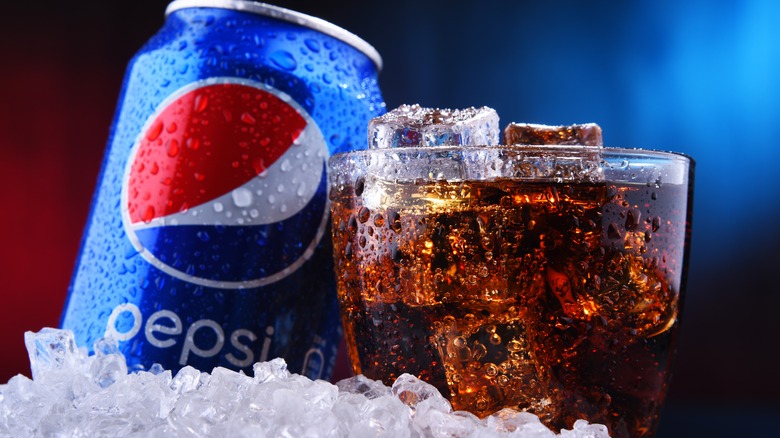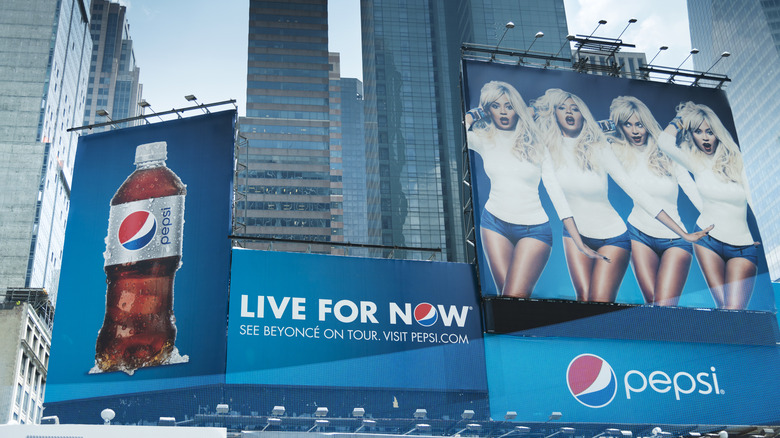Pepsi's Most Expensive Celebrity Endorsement Of All Time
Pepsi has never been shy about chasing star power. From Michael Jackson moonwalking across TV screens to Britney Spears belting out soda jingles in midriff-baring glory, the brand has a long history of turning its commercials into pop culture events. Over the years, Pepsi's celebrity roster has included names like Sofia Vergara – and even Queen Bey herself. When Beyoncé became the new face of Pepsi in 2012, she wasn't just signing on; She was stepping into a well-oiled machine built on glitz, saturation marketing, and a never-ending thirst for spectacle.
However, this deal came with more weight. With a $50 million price tag attached, Beyoncé's contract didn't just raise eyebrows. It shattered Pepsi's previous benchmarks and still stands as the brand's most expensive celebrity endorsement. Before that, the top spot belonged to Spears, whose 2001 contract was reportedly worth $8 million. Jackson's 1983 deal came in lower, at $5 million — a record-breaking endorsement at the time, but still a far cry from what Pepsi would eventually spend on Beyoncé.
Announced just ahead of her 2013 Super Bowl halftime show, it wasn't simply a matter of putting her in front of a green screen and calling it a day; This campaign was designed to make noise, with Pepsi backing the star at one of the most high-profile moments of her career. Even then, the real difference wasn't in the ad campaign. It was in what came next. Pepsi didn't just want her likeness; They wanted her input. And the result would blur the line between endorsement and partnership in ways most soda brands don't even attempt.
From halftime to headliner -- Beyoncé took Pepsi with her
What set Beyoncé's Pepsi deal apart wasn't just the number. It was how she used it. The $50 million wasn't poured into a single campaign but spread across a slate of creative ventures she helped shape. Sure, that meant commercials, but it also meant custom photo shoots, exclusive content, album promotion, and a limited-edition can featuring her face. Pepsi wasn't just slapping a celebrity on a billboard; It was underwriting Beyoncé's vision in real time.
The most visible moment came at Super Bowl XLVII, when she headlined the halftime show with a high-octane performance — sponsored, of course, by Pepsi — that included a Destiny's Child reunion and a Jake Nava-directed ad built around her past selves. But that was just the start. Pepsi also backed her self-titled fifth studio album rollout and funded broader creative projects that, while not always publicly defined, gave her unusual autonomy for a celebrity endorser. She, allegedly, even had Pepsi on her tour rider, making the brand a literal backstage presence.
For Pepsi, it was a pivot from scripted brand control to something closer to co-creation. For Beyoncé, it was a deal that reflected her dual status as both pop icon and a businesswoman with enough influence to shape the sponsorship itself. The brand got the cultural capital. She got the freedom to keep evolving, with millions behind her. Everyone got a can.

